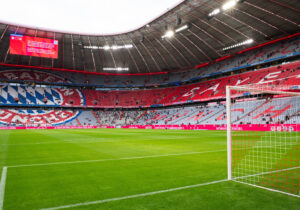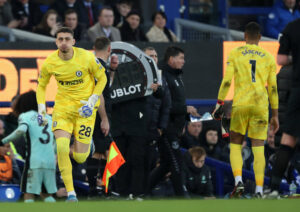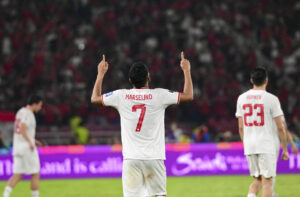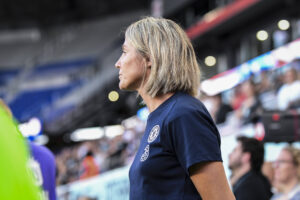As the dust settles on Manchester United’s 3-1 defeat by Chelsea in yesterday’s FA Cup semi-final, many have pointed the finger at David de Gea as the cause of his team’s defeat.
Doing so is very logical: an in-form de Gea would have saved all three of Chelsea’s goals, and Solskjaer’s side might well have won the game.
But the truth is the United goalkeeper’s display was symptomatic of all involved – absent and error-strewn. From team selection to player performances, we look at where it all went wrong for the Reds at Wembley.
Manchester United’s Catalogue of Errors in FA Cup Defeat
Faltering Formation
Interestingly, yesterday’s tie was the fourth time these two clubs have faced off this season. Manchester United had won the previous three, but in trying to mastermind a fourth successive victory over the Blues, Ole Gunnar Solskjaer came up short.
The Norwegian manager’s first mistake was to mirror Chelsea’s 3-5-2 formation from the outset. This is a setup scarcely familiar to either side, but Frank Lampard’s men looked more comfortable in it from minute one.
In many ways, it suits Chelsea – look at the way Cesar Azpilicueta roamed free down the right to set up Olivier Giroud to open the scoring on the stroke of half-time.
The same is not true of United. Time and time again, those wearing red were unable to bypass Chelsea’s high press in the first half. Upon injury to Eric Bailly moments before the opener (he was replaced by Anthony Martial, who should have started, but more on that later), Solskjaer had reverted back to his more favoured 4-2-3-1. By that point, the pattern of the game was set. Chelsea had their opponents in a vice, and Lampard had won the tactical battle.
Problems With Personnel
Solskjaer admitted afterwards that he made his team selection with one eye on Wednesday’s league game against in-form West Ham United. This meant a handful of his top performers were rested for this FA Cup game.
Fred started in place of Paul Pogba. So ineffective was the Brazilian that he was hooked after 55 minutes. By then, there was no way back for United and there was nothing the Frenchman could do to change that.
Daniel James – who has not scored a goal in domestic competition for ten months – started instead of the far more gifted Mason Greenwood. The Welshman lasted one more minute than Fred did before he was mercifully withdrawn by his manager.
Then there is de Gea. In the opposite dugout, Lampard placed his faith in cup goalkeeper Willy Caballero instead of his own problematic number one, Kepa Arrizabalaga. Solskjaer should have done the same. Failure to do so was a disservice to the capable Sergio Romero, especially given the repeated mistakes of de Gea.
On this occasion, the manager paid the price for the questionable team selection he made. United fans will hope it does not backfire once more against West Ham come Wednesday.
Individual Horror Shows
De Gea was far from the only one guilty of horrendous lapses of concentration. In fact, prior to every mistake the Spanish goalkeeper made, there were several preceding errors from teammates.
For Chelsea’s first, the ease with which Azpilicueta escaped on the right to tease a cross in for Giroud was frightening. Equally so was the way Giroud waltzed around Victor Lindelof to turn it in past de Gea’s feeble attempt to stop it.
The second goal was even worse. Young Brandon Williams presented possession to the feet of Mason Mount. Experience will teach him not to repeat such carelessness, but the fact that neither Lindelof nor Harry Maguire elected to press the ball when no Chelsea player was near them will dismay their manager more so than de Gea’s subsequent mistake.
It was fitting, then, that the third goal, which killed the game as a contest, goes down as an own goal by Maguire. For this one, Antonio Rudiger was goal-side of the £80 million centre-back before the cross even came in. What followed was an accident waiting to happen.
Collective Responsibility
Granted, David de Gea is Manchester United’s last line of defence. It is his job to come to his defenders’ rescue when they fail to protect his goal. The fact he is no longer doing so only serves to expose the frailties that frequently undermine Solskjaer’s side, regardless of their attacking prowess. When the manager himself chooses the wrong team and formation, it is an equation that results in losing matches and missing silverware.
Main Photo






